 Citizens of the United States today join in celebration of Memorial Day and honor those who have died in American wars from now all the way back to the American Civil War. It is the ninth consecutive Memorial Day during the “war on terrorism,” which was the Bush Administration’s response to the September 11 attacks. The “war on terror,” as the world knows, led to the Afghanistan and Iraq War and countless other covert military operations all aimed at rooting out terrorism.
Citizens of the United States today join in celebration of Memorial Day and honor those who have died in American wars from now all the way back to the American Civil War. It is the ninth consecutive Memorial Day during the “war on terrorism,” which was the Bush Administration’s response to the September 11 attacks. The “war on terror,” as the world knows, led to the Afghanistan and Iraq War and countless other covert military operations all aimed at rooting out terrorism.
The memories of war shared with veterans in communities are, of course, sanitized. Communities do not really tell the stories of war. Members of squads like the “Kill Teams” of Afghanistan do not share photos or cell phone videos they captured when they shot innocent civilians and posed with them. They do not talk about the glory of employing “enhanced interrogation techniques” or torture to gain, often, false information from detainees at Guantanamo or “black” prison sites to better prosecute the war against global terrorism. And probably few could be said to be telling real war stories, like the ones that can be found in the pages of the American literary classic by Tim O'Brien, The Things They Carried.
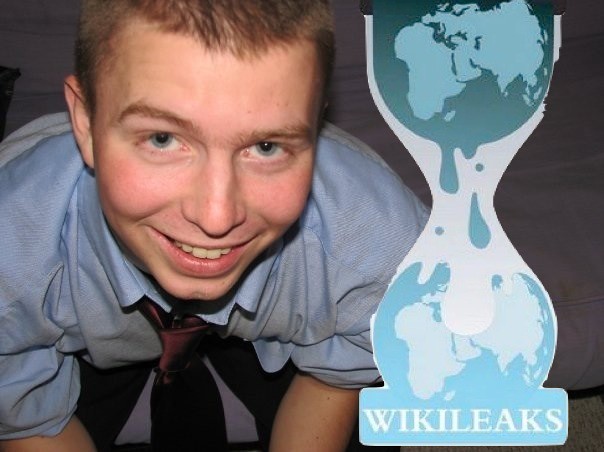 This week the program marks the one year anniversary of Bradley Manning's arrest. Joining the weekly podcast is Kevin Zeese, who is a member of the Bradley Manning Support Network Steering Committee.
This week the program marks the one year anniversary of Bradley Manning's arrest. Joining the weekly podcast is Kevin Zeese, who is a member of the Bradley Manning Support Network Steering Committee.
In the past week, there were two documentaries (or films) that went public, which portrayed Bradley Manning. One was the PBS FRONTLINE documentary (which I had much to say about and even went on RT's "The Alyona Show" to discuss). Another was an investigative short film put together by The Guardian. Zeese addresses both of those.
We also discuss how the Bradley Manning case fits into the general war on whistleblowing that the Obama Administration appears to be waging.
This is Part 1. A Part 2 will be posted soon and features more discussion from Pakistan blogger Raza Rumi on the Pakistan Papers.
To listen to the show, click play on the embedded player below. Or, go to CMN News and click "download" or "listen." It will appear at the top of the page or in the list.
PARTIAL TRANSCRIPT ---
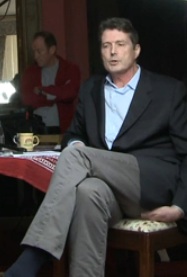 Producer Marcela Gaviria and producer/correspondent Martin Smith, who both worked on the FRONTLINE "WikiSecrets" documentary that aired last night, and Brian Manning, Bradley Manning’s father, participated in an online PBS chat that offered people an opportunity to ask questions and make comments about the film.
Producer Marcela Gaviria and producer/correspondent Martin Smith, who both worked on the FRONTLINE "WikiSecrets" documentary that aired last night, and Brian Manning, Bradley Manning’s father, participated in an online PBS chat that offered people an opportunity to ask questions and make comments about the film.
Gaviria/Smith suggest the prosecution in the Manning case is “quite strong” and investigators have “matched Manning’s computer to [computer hacker Adrian] Lamo’s, verifying the authenticity of the chats.” Gaviria/Smith add, “To be acquitted Manning’s lawyer would somehow have to prove that Manning had been framed and his computer had been tampered with.”
This focus on Lamo overlooks a key legal dilemma that has risen as a result of President Barack Obama declaring at a fundraiser that Manning “broke the law.” That's the issue of “unlawful command influence."
Whether Manning could have a fair trial now that the Commander-in-Chief has told his subordinates he thinks Manning is guilty is doubtful. A military officer would be risking his career if he or she handed down a decision that did not meet the approval of the Obama Administration. Gaviria/Smith are seemingly oblivious to this when they type their answer.
Asked why the documentary overplayed Manning’s homosexuality, Gaviria/Smith explain, “Manning’s homosexuality is not relevant. What is relevant was his struggle with the Army’s Don’t Ask/Don’t Tell policy. It eroded his respect for Army authority and led to disillusionment with Army life. It’s not that he was gay, it was that he was discriminated for being gay.”
 Anyone familiar with the stories of WikiLeaks, Julian Assange, the organization’s founder and Pfc. Bradley Manning, the alleged whistleblower to WikiLeaks, would be forgiven for wondering whether PBS Frontline’s documentary “WikiSecrets” presents anything new or not. The documentary attempts to make a sensational connection between Manning and Assange and suggest that Assange might know Manning is the source of the information.
Anyone familiar with the stories of WikiLeaks, Julian Assange, the organization’s founder and Pfc. Bradley Manning, the alleged whistleblower to WikiLeaks, would be forgiven for wondering whether PBS Frontline’s documentary “WikiSecrets” presents anything new or not. The documentary attempts to make a sensational connection between Manning and Assange and suggest that Assange might know Manning is the source of the information.
The Story
PBS FRONTLINE documentaries are typically straightforward. Thus, the opening montage provides a good idea of what the main points of the documentary will be: it’s hard to tell if Manning approached Assange or whether Assange approached Manning, WikiLeaks had feared one of its “sources” would be exposed, the chat logs suggest Manning knows Assange (but Assange denies that) and WikiLeaks is an anti-secrecy organization that doesn’t believe in secrets, which is why over half a million documents were leaked.
In the first act, FRONTLINE attempts to psychoanalyze Manning and make a determination on his mental health. Sordid details are presented leading one to understand that Manning found himself to be smarter than most of the other soldiers in the military. He was gay and had no respect for “Don’t Ask, Don’t Tell.” He was using Facebook in a way that put him at risk. He was incapable of keeping a steady job. He was a vocal person and had little respect for his commanding officers. And, an army supervisor did not find him to be fit to go to Iraq.
 New US International Cybersecurity Strategy Aims to Institute 'Rule of Law' on the Internet
New US International Cybersecurity Strategy Aims to Institute 'Rule of Law' on the Internet
The United States officially launched its international cyber security strategy in a White House event on Monday, May 16. Secretary of State Hillary Clinton joined by the following administration officials: John Brennan, the president's counterterrorism and homeland security adviser; Howard Schmidt, White House cybersecurity coordinator; Attorney General Eric Holder; Secretaries Janet Napolitano of Homeland Security and Gary Locke of Commerce; and Defense Deputy Secretary William Lynn.
The presentation of the cyber security presented several principles, outlined the approach the US intends to take in the further development of cyber security protections, and indicated how the US might use the Internet to preserve its status as a superpower in the world.
Featured during the presentation were seven principles, which appear in the framework: economic engagement, protecting networks, law enforcement, military cooperation, multi-stakeholder Internet governance, international development and Internet freedom. Within the presentation, Clinton sought to explain that cyber crime, Internet freedom and network security could no longer be “disparate stovepipe discussions.”
At no time during the launch of the strategy was WikiLeaks mentioned. Not even Clinton bothered to mention it, despite the fact that she heads a State Department that had their department’s classified information leaked and published by media organizations and continue to have new information published each day.
 For the past four or five days, a copy of a leaked confidentiality agreement from WikiLeaks has been a hot topic among those who follow news and politics. Those that have regularly scrutinized WikiLeaks, who have typically gone along with any meme in the media that shines a light on the organization’s imperfections, took the posting of this agreement as an opportunity to focus on how this showed complete hypocrisy. Those sympathetic and supportive, on the other hand, saw this as a moment when they needed to get out in front and defend the organization.
For the past four or five days, a copy of a leaked confidentiality agreement from WikiLeaks has been a hot topic among those who follow news and politics. Those that have regularly scrutinized WikiLeaks, who have typically gone along with any meme in the media that shines a light on the organization’s imperfections, took the posting of this agreement as an opportunity to focus on how this showed complete hypocrisy. Those sympathetic and supportive, on the other hand, saw this as a moment when they needed to get out in front and defend the organization.
I was one of those people who found the renewed push to further de-legitimize WikiLeaks concerning. I posted an analysis of the confidentiality agreement and later posted a comprehensive and thought-out critique of David Allen Green's work on WikiLeaks. (Green is the blogger for the New Statesman, who helped make the agreement a big story.)
As the story was breaking, I received a Twitter message, “WikiLeaks Threatens Its Own Leakers With $20 Million Penalty" http://bit.ly/klgAnz What says @kgosztola?” The message came from Roni Weiss, a personality on a podcast show called “Don’t Worry About the Government.” I told him he should have me on his program to share my opinion.
On Facebook, we went back and forth on the “Don’t Worry About the Government” show page as I tried to get him to do a segment with me. He stated his position, “My biggest concern is that I just don't have much to say about it…My stance is basically: This looks bad for them, publicity-wise, and beyond that, I don't really care, because they do a lot of things that look bad.
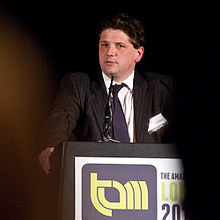 David Allen Green, legal correspondent for the New Statesman out of the UK, has spent the last few days calling attention to a leaked confidentiality or non-disclosure agreement (NDA), which he revealed in a blog post on May 11. Green has posted a second post on the agreement on his blog, Jack of Kent, and will be posting a summary to the New Statesman website on May 16, which last time I checked, he intends to glibly title, "NDAs for Dummies."
David Allen Green, legal correspondent for the New Statesman out of the UK, has spent the last few days calling attention to a leaked confidentiality or non-disclosure agreement (NDA), which he revealed in a blog post on May 11. Green has posted a second post on the agreement on his blog, Jack of Kent, and will be posting a summary to the New Statesman website on May 16, which last time I checked, he intends to glibly title, "NDAs for Dummies."
I published an initial analysis of the leaked agreement on WL Central. The analysis was featured as a “Best Opinion” in an “Irony Alert” blog post on the agreement on The Week’s website.
Green, who is the blogger who was the first to draw attention to the agreement, called it a “draconian and extraordinary legal gag that WikiLeaks imposes on its own staff” and, in particular, focused on Clause 5 of the agreement that “imposes a penalty of ‘£12,000,000 – twelve million pounds sterling’ on anyone who breaches this legal gag.”
In his follow-up post, which cites the analysis I wrote, he groups me with others who “sought to explain the document away: to normalize it and to contend that it is somehow unexceptional.” That is true. That is what I did.
He adds:
It may be well that for WikiLeaks partisans (like "the Birthers" in the United States), nothing - not even a disclosed document- will shift their adherence to their cause.
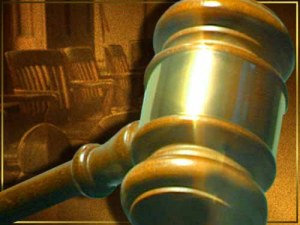 Edited podcast now posted.
Edited podcast now posted.
There are three high profile federal grand jury investigations. For each one, the argument could be made that the grand jury is chilling political action or seeking to criminalize people for associating with certain groups that are not charged with committing any crimes but instead are unsavory and illegitimate to the government.
The investigations being referred to are the investigation into Anonymous that is based in San Jose, California, the investigation into antiwar and international solidarity activists that is based in Chicago, Illinois, and the investigation into WikiLeaks that is based in Alexandria, Virginia.
Joining the "This Week in WikiLeaks" show this week is Jim Fennerty, who is a Chicago-based attorney defending the activists who were raided by the FBI in September of last year and now face a grand jury investigation. He is with the National Lawyers Guild and will be here to talk about his work defending the activists and will talk about the grand jury process and what those following the WikiLeaks might see happen in Alexandria as the investigation moves forward.
To listen to the show, click play on the widget below:
You can also listen to the show by going to this page. The podcast will appear in the list of "CMN News" episodes. Click the latest "This Week in WikiLeaks" episode and download. (The podcast can also be downloaded off of iTunes by searching for "CMN News" and then downloading the latest podcast.)
Authored by Juan Gabriel Gomez Albarello, Instituto de Estudios Políticos y Relaciones Internacionales, Universidad Nacional de Colombia. This article is available in Spanish in El Espectador.
The so-called “Lleras Act”, a proposal concerning intellectual property rights and access to internet in Colombia, prompts a discussion that has taken place in other places and which has led to various responses. I would not like to take the Colombian Constitutional Court's place and claim that, if Congress approves the current proposal, that tribunal would declare the Act inconstitutional. However, I would like to refer to the way in which the problem of granting adequate protection of basic rights such as the presumption of innocence and the freedom of expression was approached by the French Constitutional Council.
The proposal submitted to Congress by the Interior Minister, German Vargas Lleras (grandson of a former Colombian president, Carlos Lleras), proposes to protect intellectual property rights by means of restricting access to internet to those accused of infringing upon those rights. From the cultural industry's point of view, the most interested part in the profits that those rights generate, the protection mechanism included in the proposal is very ingenious: the individual or firm who feels affected by a violation of their intellectual property rights can complain before the user's internet provider and request a suspension of that user. If the provider refuses to do so, then such a provider would share the responsibility related to any violation of their rights.
 A leaked confidentiality agreement that those doing “business” with WikiLeaks are expected to sign was obtained and published by the New Statesman. The New Statesman and other news organizations believe they have uncovered another aspect of the WikiLeaks organization that indicates it is unfit to be trusted by whistleblowers. But, for anyone who understands confidentiality agreements there may be nothing extraordinary or even draconian about the agreement.
A leaked confidentiality agreement that those doing “business” with WikiLeaks are expected to sign was obtained and published by the New Statesman. The New Statesman and other news organizations believe they have uncovered another aspect of the WikiLeaks organization that indicates it is unfit to be trusted by whistleblowers. But, for anyone who understands confidentiality agreements there may be nothing extraordinary or even draconian about the agreement.
A confidentiality agreement is essentially a non-disclosure agreement. Included are details noting the “owner of the information,” the “receiver of the information,” a definition of what it considers to be “information,” why the agreement is necessary, what information is covered by the agreement, a definition of the permitted use of the information, any exceptions to the agreement, and penalties that could be imposed if the agreement is breached.
What news organizations seem to be taking issue with, rather ridiculously, is the word “owner" and the idea that WikiLeaks might be marketing this information to media organizations.
The New Statesman and others consider the use of the word "owner" to be proof that the organization finds it has “commercial ownership over the information that has been leaked to it.” But, the word “owner” is the term that is used in these agreements. It is standard and may not be proof the organization sees itself as literally owning the information.
Clause by clause:
“A” stipulates the information that it finds to be covered by the agreement is defined.
Barrister and well known Australian refugee advocate Julian Burnside has kindly allowed Wikileaks Central to reprint his latest article on the refugee situation in Australia pertaining to the "Malaysian Solution" announced on 7th May 2011.
If Julia Gillard’s “Malaysian solution” tells us anything, it’s that Tony Abbott’s stop-the-boats mantra has redefined the debate on refugees.
The Prime Minister has previously committed to not doing any deals with countries that were not signatories of the United Nations refugee convention, such as Malaysia. So why has she done so now? Because Opposition Leader Tony Abbott has frightened her.
He has revived the bogeyman that former prime minister John Howard so skilfully exploited at the time of the Tampa incident and after it. He made sections of the public think that refugees are evil people who must be kept off our shores at all costs. They are actually deeply traumatised people who turn out, in most cases, to be ordinary, hardworking people fleeing persecution, but calling them “illegals” proved to be very effective at demonising them.
When Kevin Rudd became prime minister, the government’s stance on boat people changed significantly. Six months later, the government made sweeping changes to the use of detention and delivered 90% of what people like me were asking for. All of those advances were lost within weeks of Abbott taking over as opposition leader, because he started beating the drum about the evils of boat people coming here.
This new plan is crazy. We know Malaysia is not a signatory to the UNHCR convention. We know Malaysia has a bad track record in its treatment of asylum seekers. We do not know what protections are built into the MOU and we don’t know what it will cost Australia. We don’t know what it will cost us parking 800 refugees there or receiving the 4000 Burmese here.
Traditional media organizations, especially those in the United States, are afraid of WikiLeaks. It threatens their position in society.
The new "leaks portal" launched by the Wall Street Journal called "SafeHouse" is not just a shoddy excuse of a system for accepting leaks from "sources" but a sign that the WSJ is afraid of WikiLeaks and how the organization is transforming journalism.
In an up-and-coming documentary on the New York Times, "Page One: A Year Inside the New York Times," executive editor of the Times Bill Keller says on-camera, "The bottom line is, WikiLeaks doesn't need us. Daniel Ellsberg did.” That reality has likely fueled the tension between Julian Assange and WikiLeaks and Bill Keller and the Times.
At the 2011 National Conference for Media Reform (NCMR) in Boston about a month ago, Greg Mitchell, blogger for The Nation, who has been blogging all things WikiLeaks since the release of the US State Embassy cables began, was present for a panel on WikiLeaks. The panel, in addition to Mitchell, featured Amy Goodman, Glenn Greenwald, Micah Sifry, Emily Bell, and Christopher Warren. [The full panel can be viewed here.]
I had the privilege of interviewing Mitchell the day after the panel for The Nation.
[Full disclosure: I currently serve as an intern for The Nation and I happen to assist Mitchell on a daily basis.]
 Edited podcast now posted.
Edited podcast now posted.
This week's podcast features Michael K. Busch, who teaches international relations at the City College of New York, where he is also program coordinator at the Colin Powell Center for Policy Studies. He has been covering the Gitmo Files in detail. He has also covered released cables on his site WikiBlogged, and he is listed as a resource in the back of Greg Mitchell's published book, "Age of WikiLeaks," which you can purchase in print on Blurb.com or in e-book form off of Amazon. [Follow him on Twitter @michaelkbusch]
On the program, we discuss the killing of Osama bin Laden in the context of the Pakistan Cables that one media organization, The Hindu (in India), covered extensively. We also talk about the files Busch has covered extensively and what his thoughts are on the release in general. And, the show discusses the Journal's newly launched SafeHouse, a WikiLeaks-imitation website it hopes "sources" will "leak" to like "sources" have leaked to WikiLeaks. [For more on this, WL Central coverage can be found here.]
I recently wrote a diary that I posted on DailyKos, which led to the banning of a DailyKos user and provoked suggestions that I might be a Republican. It had people calling me “asshole” and many were grading my post on a high school grading scale. The diary called for the release of bin Laden's death photos. (I posted it here at WL Central.)
It really doesn’t matter to me if you call me names or if you grade my post. If it promotes debate, fine. Do as you please. But, given the comments and suggestions that I now have no career unless I go work for Fox News, I feel obligated to further explain my position on releasing the bin Laden death photos. I also feel compelled to respond to many of the smartly argued and not so smartly argued comments that were posted in response.
Uploaded with ImageShack.us
I view everything surrounding the killing of bin Laden to be necessary to deciding whether to release the photos or not. In that sense, President Obama’s good decision to not give a speech at Ground Zero in New York yesterday should help inform the debate. What he did by not giving a speech was what someone like former President George W. Bush would not have had the courage to do: he chose, in that moment, to not exploit 9/11 and use it to further advance the national security agenda of America.
 The recent Canadian election has been the topic of much foreign news coverage, with pundits trying to explain why liberal-minded Canada has given a majority to the most right leaning party in its history, what exactly the New Democratic Party is, and why on earth Canada turned its back so firmly on its 'traditional ruling party', headed by a man described in the Guardian as "known to the British as a fine writer, historian and BBC talking head, who had returned to Canada to lead the Liberals". Embassy Magazine wrote an astoundingly condescending piece about Canada's lack of interest in foreign policy which contained the following:
The recent Canadian election has been the topic of much foreign news coverage, with pundits trying to explain why liberal-minded Canada has given a majority to the most right leaning party in its history, what exactly the New Democratic Party is, and why on earth Canada turned its back so firmly on its 'traditional ruling party', headed by a man described in the Guardian as "known to the British as a fine writer, historian and BBC talking head, who had returned to Canada to lead the Liberals". Embassy Magazine wrote an astoundingly condescending piece about Canada's lack of interest in foreign policy which contained the following:
Given Liberal leader Michael Ignatieff's background, many had expected him to campaign on foreign policy. And at the start of the campaign he did try to frame the election around the question of ethics, especially the tenor of Conservative foreign policy. ... But ... Mr. Ignatieff failed to inspire with this foreign policy-tinged message. In fact, the more he talked about it, the less traction he seemed to be getting with centrist or progressive voters. ... At one point, the Liberal leader's frustration became quite evident, with Mr. Ignatieff wondering why Canadians were not latching onto the many controversies that had dogged the Conservatives before the election. Mr. Ignatieff's plea that Canada should regain its international standing was a version of this idea that the country should be undergoing some soul-searching prior to voting. But with his historic low, it appears Canadians weren't up for that sort of deep think.
Celebration Photos Just as Likely to Inflame ‘Terrorists’ as Bin Laden Death Photos
The decision to not release photos of a dead and fatally wounded Osama bin Laden rests on at tenuous set of reasons that rest purely on Beltway conventional wisdom.
The argument that the release of photos could inflame the Middle East has been made before (recall the Obama Administration blocked the release of “torture photos” in May 2009 that the ACLU was seeking to obtain through a Freedom of Information Act request). Greg Mitchell with The Nation reminds Americans of the debate that surrounded the decision to release photos of Abu Musab al-Zarqawi after his death.
Jon Stewart made a good point last night on “The Daily Show":
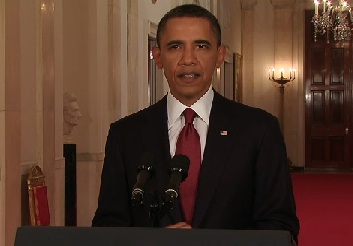 Nearly a decade after the Bush Administration announced a “war on terrorism” after the attacks on US soil on September 11, 2001, the US mounted a covert military operation that killed Al Qaeda figurehead and leader Osama Bin Laden. The operation was an extrajudicial assassination exercise that involved a firefight, which killed at least twenty people in Abbotabad, Pakistan.
Nearly a decade after the Bush Administration announced a “war on terrorism” after the attacks on US soil on September 11, 2001, the US mounted a covert military operation that killed Al Qaeda figurehead and leader Osama Bin Laden. The operation was an extrajudicial assassination exercise that involved a firefight, which killed at least twenty people in Abbotabad, Pakistan.
This was how President Barack Obama described the operation in a late-night announcement on a “national security issue” on Sunday, May 1, 2011. After putting the launching of this operation in the context of 9/11 and how the US has “tirelessly” and “heroically” fought al Qaeda and other terrorists over the past ten years, Obama delivered the news:
And so shortly after taking office, I directed Leon Panetta, the director of the CIA, to make the killing or capture of bin Laden the top priority of our war against al Qaeda, even as we continued our broader efforts to disrupt, dismantle, and defeat his network.
Then, last August, after years of painstaking work by our intelligence community, I was briefed on a possible lead to bin Laden. It was far from certain, and it took many months to run this thread to ground. I met repeatedly with my national security team as we developed more information about the possibility that we had located bin Laden hiding within a compound deep inside of Pakistan. And finally, last week, I determined that we had enough intelligence to take action, and authorized an operation to get Osama bin Laden and bring him to justice.
Update: Edited podcast is posted.
The long-awaited release of the Guantanamo Files. More than 10,000 cables in the Cablegate release now posted—2000 of them from Canada and just out before the country's election. The Grand Jury beginning to issue subpoenas in its investigation of WikiLeaks. The media getting an out-of-the-ordinary tour of Ft. Leavenworth with the consent of the Department of Defense.
There was much to talk about this week.
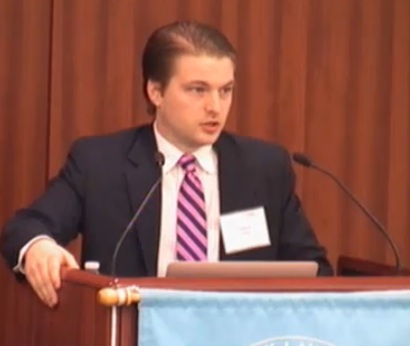 With so much to discuss, Trevor Timm, the person behind the Twitter account @WLLegal, joined the program to talk about the latest news on WikiLeaks. Timm helped to make possible a great Personal Democracy Forum event called, “WikiLeaks & the Law" just over a month ago. [Go here for video of the full panel.] He also appeared on the show just over a month ago.
With so much to discuss, Trevor Timm, the person behind the Twitter account @WLLegal, joined the program to talk about the latest news on WikiLeaks. Timm helped to make possible a great Personal Democracy Forum event called, “WikiLeaks & the Law" just over a month ago. [Go here for video of the full panel.] He also appeared on the show just over a month ago.
To listen to the recorded "This Week in WikiLeaks" podcast, click on the widget below:
An interview with Julian Assange for the Bulgarian site for investigative journalism Bivol.bg - Wikileaks media partner.

On Cablegate
Bivol: WL started Cablegate with the partnership of five top international media outlets. Are you happy with this model? What are the limitations of this approach?
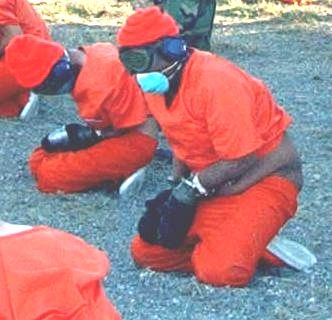 Between January 11, 2002 and April 23, 2011 (one day before the latest Wikileaks release of the Guantanamo files) there were already about 15 million search entries, 5 million images, 25,000 videos, 6 thousand news items, 900 related books
Between January 11, 2002 and April 23, 2011 (one day before the latest Wikileaks release of the Guantanamo files) there were already about 15 million search entries, 5 million images, 25,000 videos, 6 thousand news items, 900 related books
and around 80 releated movies - 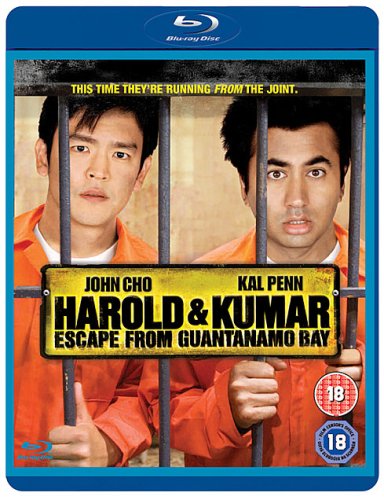 including an American stoner styled 'comedy' pictured to your right - about the Guantanamo bay detention and torture camp.
including an American stoner styled 'comedy' pictured to your right - about the Guantanamo bay detention and torture camp.
While new information has been published in Wikileaks' latest release of the Guantanamo files, a plethora of evidence about Guantanamo's child detainees, its specious justification and illegality were already available in the public domain. That includes a Senate Armed Services Committee report that stated that detainees were murdered in US custody.
As Jason Leopold said in my interview with him last week, "Murdered. I am talking about murder. I mean, this report talks about how the torture program was based on the US military's resistance to interrogation survival training technique...So, yes, you are absolutely right there are a number of documents and a number of reports that are out there. The problem is that people, and that includes some journalists, frankly don't take the time to read it."
The image above of 'Harold and Kumar Escape from Guantanamo' is not a comedy. It's a horror show. And, Guantanamo Bay is only the beginning of the entertainment superpower's 'theater of cruelty', coming to a town near you.
The institutions of society and of government - in other words, the organs of power, their structure, and their relationship to one another - the press, the legislature, the executive, and the judicial - no longer function in a manner that ensures their intended counter balance to tyranny. As a result our nation's civic, civil, and military power has been usurped by the highest bidder, some of them even foreign, and our democratic republic is drowning in a sea of Blackwater.
Theme by Danetsoft and Danang Probo Sayekti inspired by Maksimer